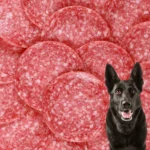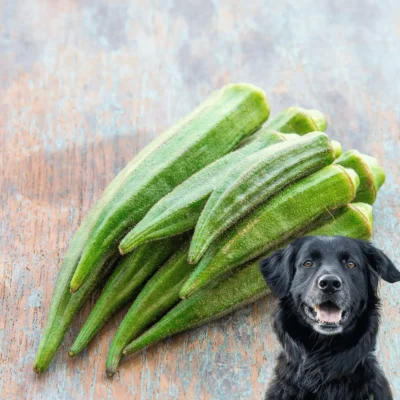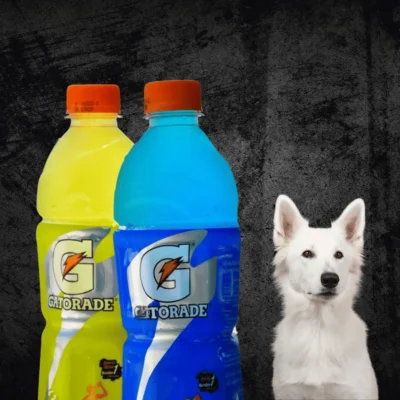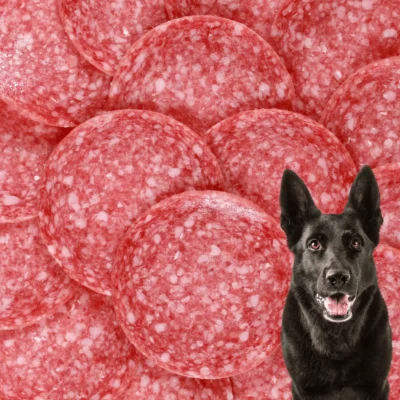Cream cheese, with its smooth texture and rich flavor, has indeed become a beloved dairy staple in many households. Similarly, cheese, in general, is undeniably delicious, and many dogs find its flavorsome taste and smell irresistible. However, before indulging your furry friend in a cheesy delight, it’s crucial to ensure its safety and suitability for their diet.
In this article, we will explore the question: Can dogs eat cream cheese? We’ll delve into which types of cheese are suitable for dogs, discuss the benefits and risks associated with feeding cream cheese to dogs, and explore the appropriate serving sizes for our canine companions.
Here are the topics we’ll explore in this blog post:
- Can Dogs Eat Cheese?
- Is Cream Cheese Safe for Dogs to Eat?
- Health Benefits of Cream Cheese for Dogs
- Risks of Cream Cheese for Dogs
- How Much Cream Cheese Is Safe for Dogs?
- When to Avoid Feeding Your Dog Cream Cheese?
Can Dogs Eat Cheese?

Cheese can be a tasty and enjoyable treat for dogs when given in moderation. It’s a popular choice for training rewards, especially in distracting environments where extra motivation is needed.
However, it’s important to choose plain, unsalted varieties to avoid harmful ingredients or seasonings. With care and moderation, cheese can be a delightful addition to your dog’s snack options!
Is Cream Cheese Safe for Dogs to Eat?
Yes, cream cheese can be a safe and tasty treat for dogs when given in small amounts as an occasional treat. Cream cheese can offer several health benefits for dogs as it contains high amounts of essential fatty acids, calcium, vitamin A, and B complex vitamins. Some dog treats even contain a thin layer of cream cheese frosting, making them a flavorful addition to their diet.
However, it’s essential to moderate their intake, as excessive consumption of cream cheese can lead to health issues. Too much cream cheese can cause an upset stomach, contribute to excessive weight gain, or even lead to pancreatitis due to its high fat content. Additionally, cream cheese has a high salt content, which can contribute to high blood pressure in dogs.
It’s important to note that dogs produce low amounts of lactase, the enzyme necessary for digesting dairy products, and some dogs may be lactose intolerant. Therefore, it’s crucial to monitor your dog for any signs of lactose intolerance when feeding them cream cheese.
While cream cheese can be a tasty treat for dogs, other types of cheese pose fewer risks to their health. Low-fat options like mozzarella, cottage cheese, and goat cheese are better alternatives. However, it’s essential to avoid feeding dogs blue cheese, as it produces a mycotoxin called Roquefortine C, which can be harmful to dogs.
Health Benefits of Cream Cheese for Dogs:

Cream cheese can offer several health benefits for dogs when given in moderation. Firstly, it serves as a source of protein, essential for building and repairing tissues in a dog’s body, supporting muscle growth, and overall strength. This promotes a healthy and active lifestyle for your furry friends.
Additionally, the fats present in cream cheese can provide a quick energy boost for dogs, which can be especially helpful for active dogs or during intensive training sessions. The taste and texture of cream cheese are highly palatable to some dogs, making it a useful tool for administering medication or encouraging picky eaters to consume their meals.
Cream cheese can also promote dental health when used as a stuffing for toys or spread on dental chews. This encourages chewing behavior, which helps reduce plaque and tartar buildup on their teeth.
Furthermore, cream cheese can be an effective means of delivering supplements or medications to dogs, ensuring they receive the necessary nutrients or treatments without resistance.
However, it’s crucial to remember that cream cheese should only be given in moderation and as part of a balanced diet to avoid potential health issues associated with excessive consumption, such as weight gain or pancreatitis.
Risks of Cream Cheese for Dogs:
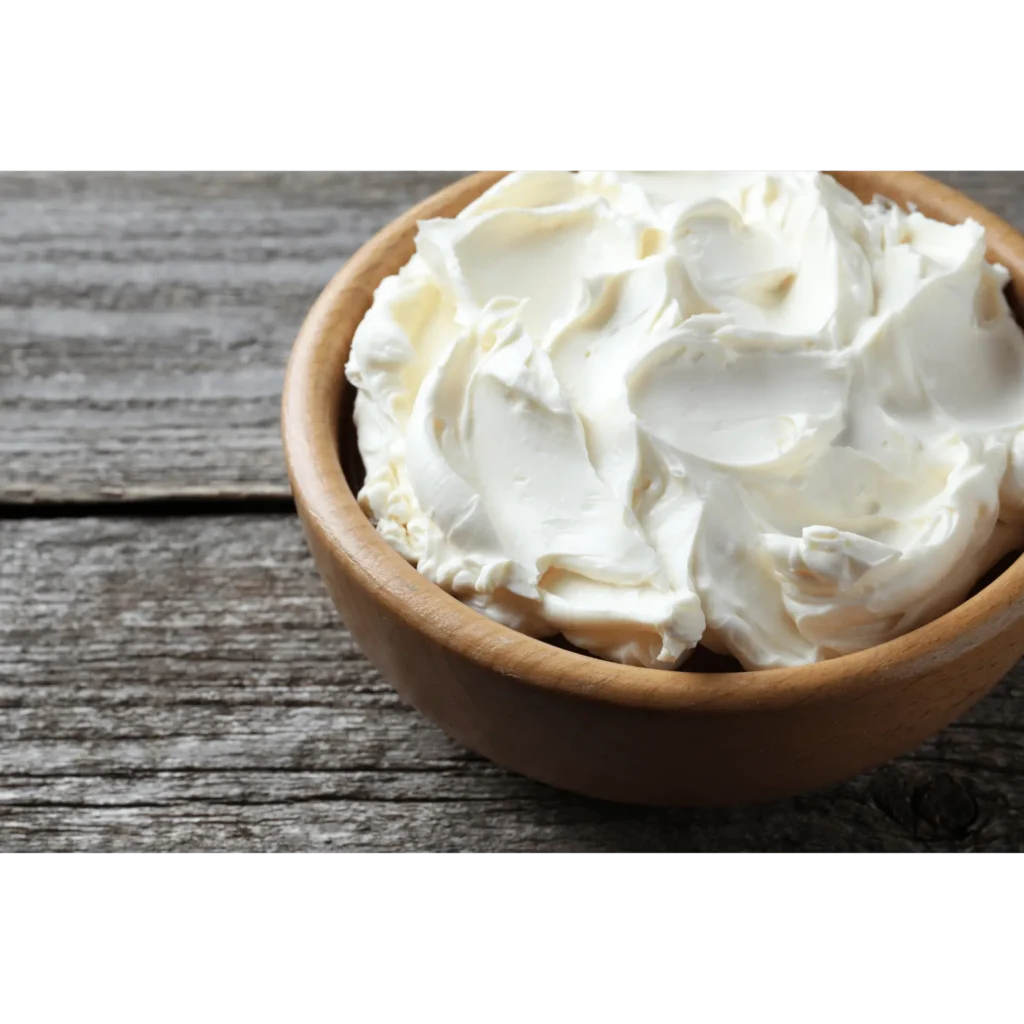
While cream cheese can have some benefits for dogs, there are also perils associated with feeding it to your furry friend:
1. Lactose Intolerance:
Many dogs are lactose intolerant, meaning they have difficulty digesting lactose, the sugar found in milk products like cream cheese. Feeding cream cheese to a lactose-intolerant dog can lead to digestive issues such as diarrhea, gas, and stomach upset.
2. High Fat Content:
Cream cheese is high in fat, which can be problematic for dogs, especially those prone to pancreatitis or obesity. Excessive consumption of fatty foods like cream cheese can contribute to weight gain, digestive problems, and other health issues.
3. Additives and Flavors:
Some varieties of cream cheese may contain additives, such as garlic or onion, that are toxic to dogs. It’s essential to read the ingredient list carefully and avoid cream cheese products with potentially harmful ingredients.
4. Calorie Overload:
Due to its high fat content, cream cheese is calorie-dense. Feeding your dog too much cream cheese can lead to an imbalance in their diet and contribute to weight gain over time.
5. Potential Choking Hazard:
Cream cheese can be sticky and may pose a choking hazard, especially if your dog tries to swallow a large amount at once or if they have a tendency to gulp their food without chewing properly.
It’s important to consider these risks before feeding cream cheese to your dog and to do so in moderation. If you’re unsure whether cream cheese is suitable for your dog, it’s best to consult with your veterinarian for personalized advice based on your dog’s individual health needs and dietary requirements.
How Much Cream Cheese is Safe for Your Dog?
When it comes to human foods, always remember to offer dogs only small portions of plain cream cheese. It’s essential to introduce it gradually into their diet, especially if it’s their first time trying it. Start with a small amount, such as a teaspoon, mixed into their regular dog food or offered as a small piece by hand. This allows you to observe any adverse reactions or digestive issues that may occur.
Choosing a low-fat cream cheese over one with a high fat content is preferable, as it helps mitigate the risk of weight gain and digestive upset. While large dog breeds may be able to tolerate slightly larger portions, it’s still best to offer them only a tiny amount to avoid overindulgence.
For example, a small piece of bagel with a thin layer of cream cheese spread is generally considered an occasional treat. However, it’s crucial to avoid feeding dogs cream cheese products containing additional ingredients such as chives, blueberries, strawberries, jalapeños, or honey. These ingredients may not be suitable for dogs and could potentially cause adverse reactions or digestive issues. Always read the ingredient list carefully before sharing any human food with your furry friend.
When to Avoid Feeding Your Dog Cream Cheese?
Dogs with certain health conditions, such as diabetes, high blood pressure, or digestive problems, should avoid consuming cream cheese altogether. Even small amounts of cream cheese can exacerbate these conditions or cause digestive distress in sensitive dogs.
Additionally, dogs who are lactose intolerant should steer clear of cream cheese, as it contains lactose, a type of sugar found in milk products. Lactose-intolerant dogs lack the enzyme lactase needed to break down lactose, leading to gastrointestinal issues such as an upset stomach, diarrhea, or vomiting when they consume dairy products like cream cheese.
If your dog exhibits any of these symptoms after consuming cream cheese, it’s crucial to contact your veterinarian for guidance and appropriate treatment. They can provide tailored advice based on your dog’s specific health needs and help alleviate any discomfort or complications arising from dietary indiscretion.
Conclusion:
In conclusion, while cream cheese can be a tasty and enjoyable treat for dogs, it’s essential to approach its inclusion in their diet with caution and moderation. While it offers some health benefits, such as being a source of protein and essential nutrients, it also carries certain risks, particularly for dogs with specific health conditions or those who are lactose intolerant.
By understanding the potential benefits and risks associated with feeding cream cheese to dogs, as well as knowing the appropriate serving sizes and when to avoid it altogether, pet owners can make informed decisions that prioritize their furry friend’s health and well-being.
When it comes to our furry companions’ diet and well-being, consulting with a veterinarian is paramount. Their expertise ensures that we make informed decisions regarding our dogs’ dietary needs and any potential health considerations. With the guidance of a veterinarian, we can safely incorporate cream cheese into our dogs’ diets as an occasional treat, allowing them to indulge while maintaining optimal health. This mindful approach not only enriches their diet but also strengthens the bond between pet and owner, fostering a relationship built on care, trust, and shared enjoyment.
FAQs:
1. What cream cheese is safe for dogs?
Dogs can occasionally have small amounts of plain cream cheese. However, it’s high in fat and calories, so moderation is key. Avoid varieties with harmful ingredients like chives, onions, or garlic.
2. Is peanut butter or cream cheese better for dogs?
Feeding cheese or other dairy products to your dog can lead to digestive issues like diarrhea and should generally be avoided as a snack. Peanut butter, on the other hand, is a popular and generally safe treat for dogs.
3. What cheese is best for dogs?
Mozzarella and cottage cheese are lower in fat and can be good snacks for dogs. Swiss cheese is lower in lactose, making it easier on your pet’s digestion. Cheddar cheese, while common, should be given in small doses due to its salt content.
4. Can I give my dogs honey?
Yes, dogs can have honey in small quantities. However, excessive consumption can lead to elevated blood sugar levels, resulting in symptoms like vomiting, diarrhea, or loss of appetite. If your dog shows these signs after consuming honey, consult your vet.


